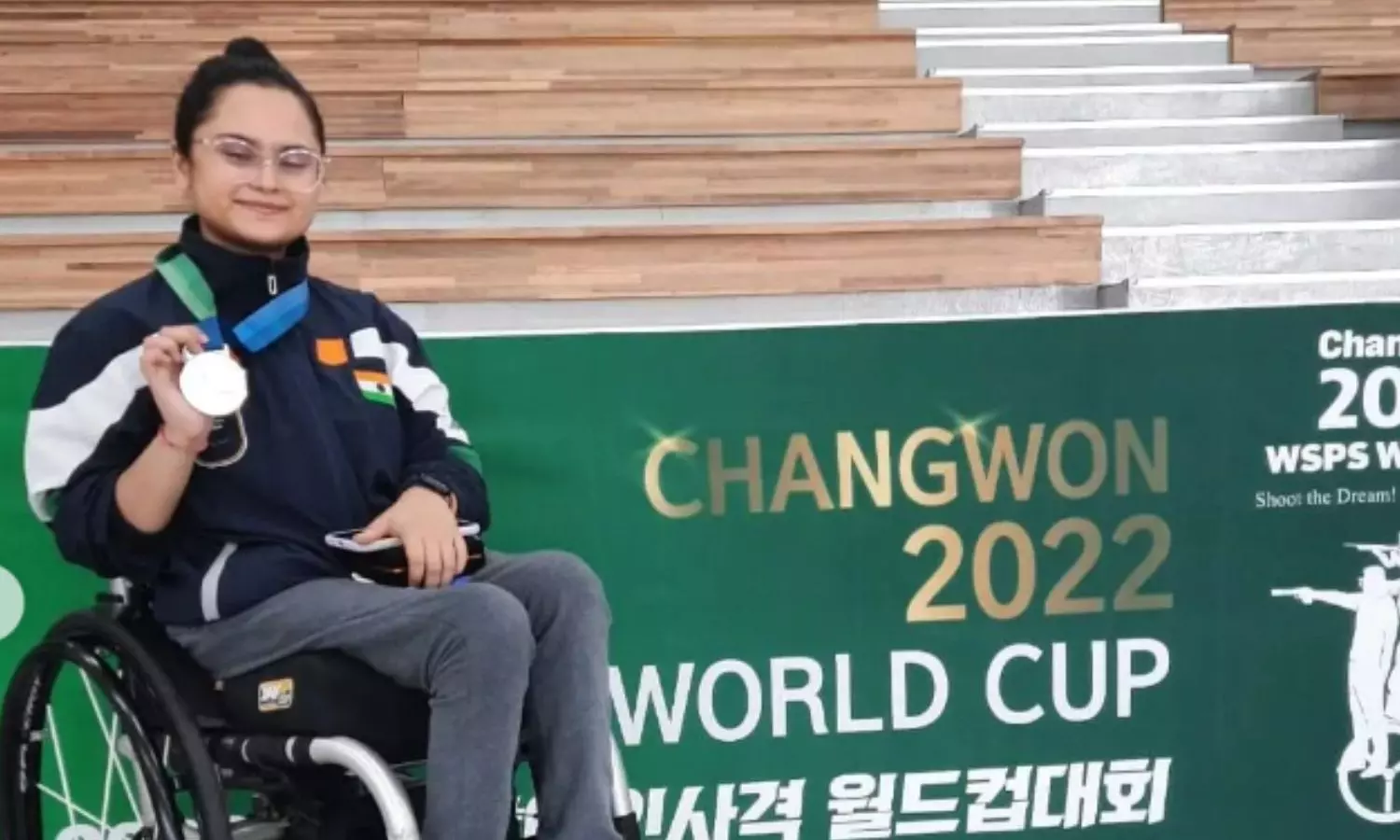Para Sports
Paris Paralympics set to break gender barrier with new record
The games demonstrates yet again that the world of sports is evolving to embrace women's equal participation.

Avani Lekhara won India's first gold medal at the 2020 Summer Paralympics. (File photo)
August 26 commemorates the adoption of the 19th Amendment to the US Constitution, a move that occurred in 1920 to protect women's rights and prohibit gender-based voting discrimination.
And ever since the Congress designated the day to the cause in 1973, Women's Equality Day is observed in several parts of the world.
With calls for women's right and equality across all walks of life at an all-time high, equal representation in sports is a topic that simply cannot be ignored.
The recently concluded Summer Olympics was the first in its history to observe full gender parity and the upcoming Paralympics is now following suit.
A new gender record at the Paralympics
Scheduled to begin on the 28th of August, the Paris Paralympics will witness a record-breaking 1,983 women athletes competing, constituting an impressive 45% of the total participants.
This surpasses the previous record set in Tokyo, marking a significant leap forward in women's representation.
The Paralympic movement's commitment to inclusivity is evident in the increased number of medal events open to women, totaling 235, eight more than the Tokyo Games.
The progress is undeniable and since the Sydney Paralympics, the number of women athletes has more than doubled, signifying a monumental shift in the landscape of sports.
IPC President Andrew Parsons rightfully attributes this success to the tireless efforts of the IPC, National Paralympic Committees, and international federations. Their dedication to increasing women participation at every level is bearing fruit, fostering a new era of gender equality in sports.
Thirty-five delegations boast a record number of women athletes for the Paris 2024 Paralympic Games, while 27 delegations have more women athletes than male athletes.
Indian women in the fray as well
India will be sending 32 women athletes to Paris, marking India's largest-ever women contingent.
Fifteen Para sports – Para archery, Para athletics, Para badminton, Para canoe, Para-cycling, Para equestrian, Para judo, Para powerlifting, Para rowing, Shooting Para sport, Para swimming, Para taekwondo, Para triathlon, Para table tennis, and wheelchair rugby – have more women athletes competing compared to Tokyo 2020.
Para equestrian (17 male/ 61 women) and Para powerlifting (89 male/ 90 women) have more women competitors than men, while Para badminton, goalball, Para rowing, and wheelchair basketball have achieved gender parity.
Boccia (68 male/57 women), Para judo (79 male/68 women), Para taekwondo (61 male/60 women), Para triathlon (66 male/55 women), sitting volleyball (96 male/ 91 women) and wheelchair fencing (49 male/ 48 women) are almost at gender parity.
The Paralympic's unwavering commitment to gender equality sets an inspiring example for the entire sports world.
It shatters stereotypes, empowers women, and promotes a more inclusive sporting culture.
And as the world commemorates Women's Equality Day, the Paralympics serves as a catalyst for change and yet again demonstrating that the world of sports is evolving to embrace women's equal participation.
